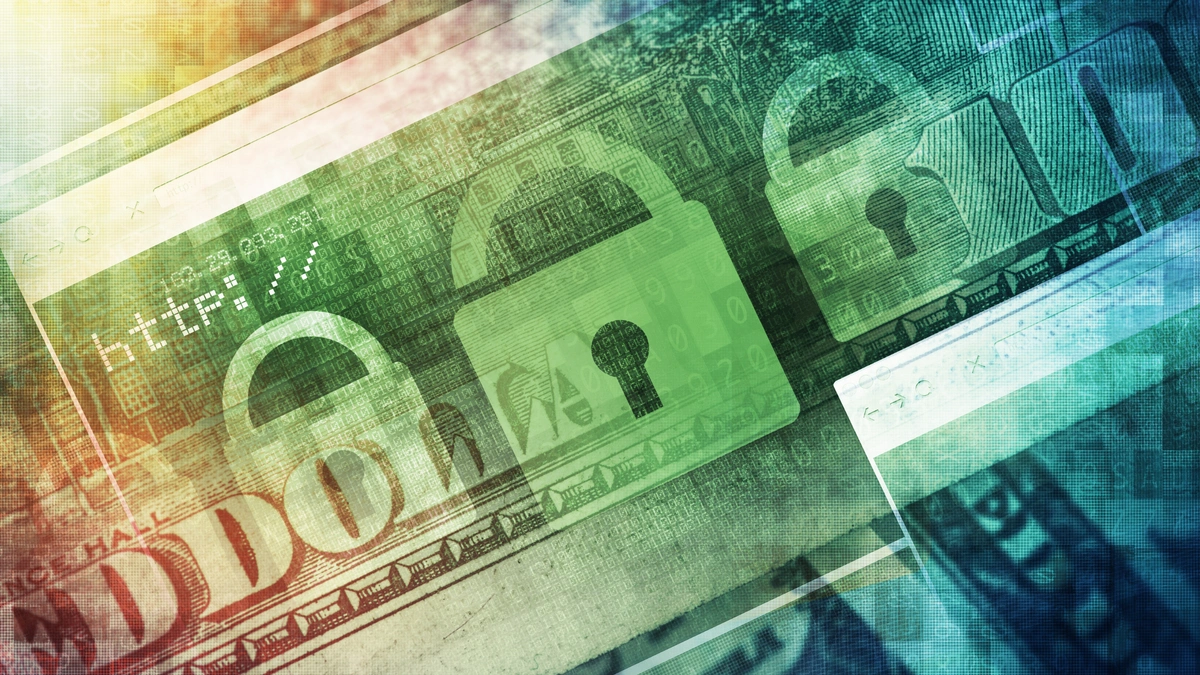In the rapidly evolving landscape of financial technology, cybersecurity has emerged as a critical component for safeguarding sensitive information and maintaining trust within the industry. A stark reminder of this was the infamous cyberattack on JPMorgan Chase in 2014, which compromised the data of over 76 million households and 7 million small businesses.

The attackers exploited vulnerabilities in the bank's software systems, gaining access to highly confidential data and highlighting the potential risks faced by financial institutions. This incident underscored the urgent need for robust cybersecurity measures to protect both financial assets and customer trust.
Even now, financial institutions must urgently strengthen their cybersecurity measures to protect financial assets and maintain customer trust. Organizations are actively seeking top talent with certifications like CISSP to validate their skills. This process starts with educating all employees about the latest threats.
Why is Cybersecurity Crucial for the Financial Sector?
The financial sector is a prime target for cyberattacks due to the vast amounts of sensitive data and financial transactions processed daily. "No matter how secure we make a system, some human somewhere has a form of legitimate access," notes cybersecurity expert Scott Isaac in a recent Learning Tree webinar.
This inherent vulnerability underscores the importance of robust cybersecurity protocols. Financial institutions face staggering losses from cyberattacks, making cybersecurity an indispensable part of risk management strategies.
So, it’s 2024 and People Are Still at the Risk of Identity Theft?
Despite remarkable advancements in cybersecurity, identity theft remains a significant threat that continues to challenge individuals and organizations alike. "It's never been easier to discover what those buttons are. Now that we share "practically everything online," warns Isaac, a cybersecurity expert. With the proliferation of social media platforms and online services, personal data becomes increasingly accessible, making it attractive to cybercriminals.
As a result, the risk of exploitation grows, necessitating not only continuous advancements in security measures but also heightened awareness and education among users. By staying informed about potential threats and adopting best practices for data protection, individuals can better safeguard their information in this digital age.
The Importance of Cybersecurity for Banks
Banks are not just repositories of money but also vaults of critical information. Protecting this dual asset is paramount. "As we as organizations are getting better at security... we are naturally reducing the traditional attack surfaces," emphasizes Isaac.
Effective cybersecurity practices ensure customer data is protected, thereby maintaining trust, and safeguarding the institution’s reputation. Reports from IBM Security highlight that data breaches can cost banks millions, both financially and in terms of reputation.
Is Wall Street Vulnerable to Cybersecurity Threats?
Wall Street, with its interconnected systems, is particularly susceptible to cyber threats. Recent high-profile attacks demonstrate the potential for significant financial disruption. "We are forcing an almost evolution from the attackers," Isaac explains, urging institutions to stay ahead of emerging threats.
The interconnected nature of financial markets means a cyberattack on Wall Street could have wide-reaching implications, potentially affecting not only investors and institutions directly involved but also impacting global financial stability. Such an attack could disrupt trading activities, lead to significant financial losses, and erode investor confidence worldwide, triggering a chain reaction across international markets and the supply chain.
This underscores the importance of robust cybersecurity measures to safeguard these critical financial infrastructures.
What is Considered a Data Breach?
A data breach involves unauthorized access to confidential data, resulting in potential misuse and a significant loss of trust among stakeholders. The phrase, "A breach isn't just a loss of data, it's a breach of trust," resonates strongly in the financial context, highlighting the severe impact such incidents can have on an institution's reputation and client relationships. Financial institutions must navigate complex regulatory landscapes to protect sensitive information.
Understanding regulatory definitions, such as those outlined by the General Data Protection Regulation (GDPR), is crucial. By aligning their security measures with these legal standards, institutions can effectively reduce the risk of financial penalties and reputational damage. This proactive approach not only safeguards data but also ensures continued trust and confidence from clients and partners.
What are the Most Common Security Breaches?
Phishing, malware, and social engineering are among the most prevalent security breaches that organizations face today. Phishing attacks typically involve fraudulent emails or websites designed to trick individuals into revealing sensitive information, such as passwords or credit card numbers. "Phishing emails used with success from the attackers' perspective to compromise like Sony Pictures," outlines Isaac, highlighting the effectiveness of these attacks in breaching even large corporations' defenses.
Malware, on the other hand, encompasses a variety of malicious software designed to infiltrate, damage, or disable computers and networks. It includes viruses, worms, trojans, and ransomware, each with unique methods of infection and destruction.
Social engineering exploits human psychology by manipulating individuals into performing actions or divulging confidential information, often bypassing technical defenses by targeting the user directly. These cyberattacks come in the form of pretexting, baiting, and tailgating.
Pretexting involves creating a fabricated scenario to manipulate someone into divulging confidential information.
Baiting lures victims by offering something enticing, like free software or a gift, to trick them into compromising their security.
Tailgating is the act of an unauthorized person following an authorized individual into a restricted area to gain access without proper credentials.
To mitigate these threats, institutions need to educate their workforce to recognize and respond to such threats effectively. Training programs should focus on raising awareness about common attack vectors and improving employees' ability to identify suspicious activities. Additionally, implementing robust security protocols and encouraging a culture of vigilance can significantly enhance an organization's security posture.
Do Companies Get Fined for Data Breaches?
The regulatory landscape in the financial industry has become increasingly stringent, imposing strict penalties for data breaches, which emphasizes the critical need for compliance across industries. This environment highlights a significant point: "The cost of non-compliance often exceeds the cost of implementing robust security measures," underscoring the crucial importance of proactive cybersecurity strategies. Financial institutions are under intense scrutiny and face severe fines and legal actions if they fail to protect sensitive data.
- Regulatory Fines: Regulatory bodies like the General Data Protection Regulation (GDPR) in the EU can impose fines up to €20 million or 4% of the company's annual global turnover, whichever is higher, for non-compliance with data protection laws.
- Federal and State Penalties: In the United States, federal agencies like the Federal Trade Commission (FTC) can levy fines for failing to protect consumer data. Additionally, individual states have their own data protection laws, such as the California Consumer Privacy Act (CCPA), which can result in fines.
- Industry-Specific Regulations: Financial institutions may also be subject to industry-specific regulations like the Gramm-Leach-Bliley Act (GLBA) in the U.S., which mandates financial privacy and data protection, with penalties for non-compliance.
- Class Action Lawsuits: Beyond regulatory fines, companies may face class action lawsuits from affected customers, which can lead to significant financial settlements.
- Reputational Damage: While not a direct fine, the reputational damage from a data breach can lead to loss of business and decreased stock value, indirectly costing the company millions.
This reality reinforces the necessity for continuous monitoring, regular audits, and ongoing improvement of security protocols to safeguard against potential threats. As cyber threats advance, organizations must prioritize investment in comprehensive security systems, employee training, and innovative technologies to maintain data integrity and trust.
What is Cybersecurity Doing to Fight Against the Dark Web?
The dark web acts as an underground marketplace for a range of illicit activities, most notably data breaches and illegal transactions. It operates in the shadows of the internet, accessible only through specialized software that provides a degree of anonymity for its users. "We can also create simulated environments to trick users and their devices into divulging sensitive information," Isaac elaborates, pointing to the innovative and sometimes deceptive cybersecurity tactics employed to combat these threats.
Cybersecurity experts and institutions deploy sophisticated tools and techniques, such as machine learning algorithms and behavioral analysis, to monitor dark web activities. Their goal is to identify and mitigate potential threats before they evolve into major breaches, thereby protecting sensitive data and maintaining the integrity of their systems. These proactive measures are a crucial component of modern cybersecurity strategies, reflecting the ongoing battle against cybercrime.
What Can You Do?
As cyber threats continue to evolve, so must the cybersecurity strategies of financial institutions. The complexity and sophistication of these threats require an ongoing commitment to understanding and countering potential vulnerabilities. Continuous learning and development in cybersecurity are vital for safeguarding assets, protecting sensitive data, and maintaining trust with clients and stakeholders. This ongoing education ensures that teams are well-equipped to handle new threats as they arise.
Decision-makers are encouraged to invest in comprehensive cybersecurity training programs, which should be tailored to address specific risks faced by their institutions. Overall, Learning Tree’s CISSP® Training and Certification Prep Course can significantly enhance a financial security specialist's ability to protect sensitive information and maintain robust security protocols. This training not only includes technical skills but also focuses on fostering a culture of awareness and vigilance throughout the organization. By doing so, institutions can ensure their teams are prepared to respond effectively to incidents and breaches, minimizing potential damage.
Moreover, investing in cybersecurity is not just a protective measure but a strategic imperative for long-term success and stability. It helps in building a robust defense mechanism that can adapt to the ever-changing landscape of cyber threats. Such proactive measures can enhance customer confidence and solidify the institution's reputation as a secure and reliable entity in the financial sector. In a world where digital transformation is accelerating, prioritizing cybersecurity is crucial for staying competitive and resilient.
Secure your future, perform a cybersecurity knowledge check and gain insight into your team’s ability to eliminate potential cyber threats and vulnerabilities.


